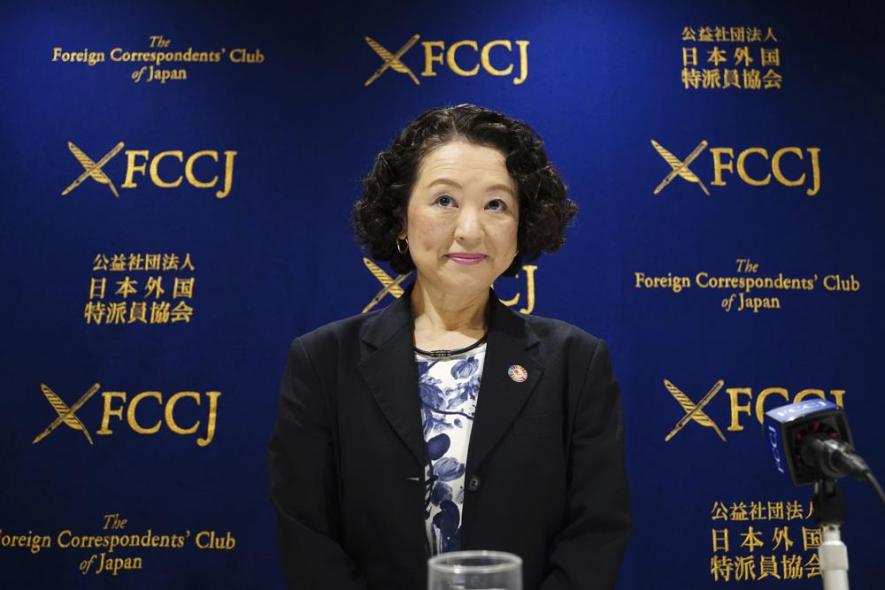First Female Head of Japan’s Powerful Labour Union Federation Vows to Empower Women

Image Courtesy: AP
Tokyo: The first female president of Japan's powerful labour union federation said on Friday she will work to correct the gender gap in wages and working conditions to help empower women.
“Progress is extremely slow,” said Tomoko Yoshino, who was elected this month as head of the 7 million-member Japanese Trade Union Confederation, known as Rengo.
“I will tackle all activities at Rengo from the perspective of gender equality and diversity.”
She noted that Japan placed 120th out of 156 nations in this year's gender gap ranking by the World Economic Forum.
Yoshino, the federation's first female leader since its foundation in 1989, is also unique because she worked at a medium-size sewing machine maker after graduating from high school and belonged to a union composed mainly of small and medium-sized companies — unlike her male predecessors who worked at major corporations or labour unions.
Yoshino, 55, said she initially wondered if her background qualified her for the top job.
But then, “I thought of many talented women who had to leave their jobs without being allowed to rise in the ranks,” she said. “I thought I should continue their efforts and their will, and decided I should not miss this opportunity to break through Japan's glass ceiling.”
Despite gender equality laws, women receive lower wages than men, and their presence is limited in decision-making positions at work, school and elsewhere.
Among Yoshino's first important missions are annual negotiations with companies over salary increases and better working conditions, including for women, and her participation in an economic forum launched by new Prime Minister Fumio Kishida, who has called for better income distribution and economic growth through higher salaries.
Many women work in part-time or temporary jobs because Japanese labour practices often prevent them from returning to full-time positions after taking leave for child rearing — a role that few Japanese men share — and have been among the worst hit by the coronavirus pandemic.
Yoshino said the traditional concept of husbands working to support wives who stay at home to take care of children also contributes to lower wages for women, and said it's time to review the salary framework.
“A society that provides a pleasant working environment for women will be pleasant for everyone,” she said.
“Empowering women can revitalise the economy, but the priority is to tackle the gender issue from the perspective of women's rights."
Get the latest reports & analysis with people's perspective on Protests, movements & deep analytical videos, discussions of the current affairs in your Telegram app. Subscribe to NewsClick's Telegram channel & get Real-Time updates on stories, as they get published on our website.














